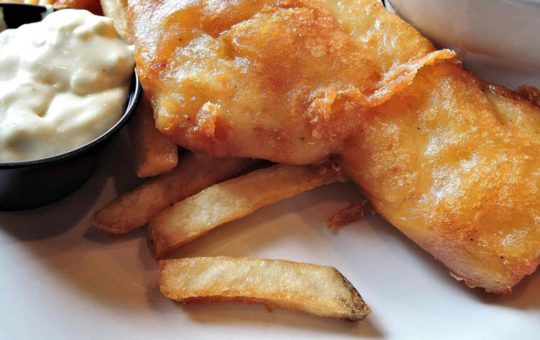
Understanding the Shift in UK Seafood Supply: Challenges and Opportunities
The United Kingdom’s relationship with its seafood resources has undergone a significant transformation over the past century. Traditionally, the UK relied heavily on its own waters to satisfy domestic demand for seafood. However, recent research from the University of Exeter reveals a notable decline in local fish stocks, coupled with a rise in imports from over 2,000 miles away. This shift poses critical questions about fishing sustainability, marine conservation, and the future of the UK’s seafood industry.
For students, professionals, and policymakers involved in fisheries management, environmental conservation, or food security, understanding this transition is essential. The escalating dependence on imported seafood—from nearly five countries in 1900 to 89 countries by 2020—reflects broader changes in marine ecosystems, fishing practices, and global trade. This article explores these developments, their implications, and potential strategies for promoting sustainable fishing practices within the UK.
The Evolution of UK Seafood Production and Imports
Data compiled by Exeter University researchers chronicles a century-long journey from domestic self-sufficiency to a heavily import-dependent system. In 1900, the UK sourced most of its seafood from local waters, primarily catching species like cod, haddock, and salmon—the so-called “big five.” However, overfishing in the 1970s, combined with regulations aimed at rebuilding fish stocks, led to a noticeable drop in UK catch sizes.
Consequently, the UK’s seafood demand began to be met increasingly by imports. By 1985, seafood imports overtook domestic landings, and today, approximately 80% of UK seafood consumption is fulfilled by imported products. These imports originate from a diverse array of countries—many located in West Africa, Asia, and the Indian Ocean—highlighting the global reach of the UK’s seafood consumption.
Importantly, the most common seafood items in UK markets—cod, haddock, salmon, tuna, and prawns—are often sourced from fishing grounds where stocks are depleted or closures are in place, raising concerns about overfishing and environmental degradation.
Implications of the UK’s Dependence on Seafood Imports
Environmental and Marine Conservation Challenges
The shift towards importing seafood has implications for marine ecosystems worldwide. Distantwater fisheries—particularly in West Africa and the Indian Ocean—often employ highly destructive fishing practices that can lead to habitat damage, bycatch, and overexploitation. This not only depletes local fish populations but also threatens the livelihoods of communities dependent on fishing in these regions.
From a marine conservation perspective, sourcing seafood from environmentally unsustainable fisheries contradicts efforts to promote responsible fishing methods and protect biodiversity. The increase in global demand also contributes to higher carbon emissions, considering the extensive transportation involved in bringing seafood from distant to local markets.
Sustainability and Food Security
For the UK, heavy reliance on imports raises concerns about food security, especially in the face of climate change, geopolitical tensions, and potential disruptions in global supply chains. Ensuring that the seafood consumed domestically is sustainably sourced within UK waters could mitigate these risks, support local economies, and reduce the environmental footprint associated with long-distance transportation.
Strategies for Promoting Sustainable Fishing and Marine Conservation in the UK
Addressing the challenges highlighted by Exeter’s research requires a multifaceted approach involving policymakers, industry stakeholders, and consumers. Here are key strategies to consider:
Enhancing Fisheries Management and Quotas
Implementing science-based quotas and establishing Marine Protected Areas (MPAs) can help replenish overfished stocks. Sustainable management ensures that fishing activities do not exceed the regenerative capacity of fish populations, aligning with conservation goals.
Promoting Local and Sustainable Seafood Consumption
Consumers can support sustainable fishing practices by choosing locally caught seafood. Education campaigns and certification schemes—such as the Marine Stewardship Council (MSC)—can help guide ethical purchasing decisions.
Diversifying Seafood Diets
Expanding the range of seafood consumed beyond the “big five” species can alleviate pressure on depleted stocks. Emphasizing lesser-known, sustainably caught species also promotes biodiversity and resilience in marine ecosystems.
International Collaboration for Marine Conservation
Global fishery management agreements and cooperation with fishing nations are vital for ensuring sustainable practices worldwide. UK policymakers can advocate for stricter international regulations and support capacity-building efforts in developing fishing communities.
The Role of Education and Research in Sustainable Marine Ecosystems
Academic institutions like the University of Exeter play a crucial role in advancing research on fisheries and marine conservation. Education initiatives can raise awareness about sustainable seafood practices and influence consumer behavior. Additionally, ongoing scientific assessment of fish stocks and fishing impacts guides informed policymaking.
For students and professionals interested in this field, pursuing studies in marine conservation, environmental science, or sustainable fisheries management offers meaningful pathways to contribute to solutions.
Navigating the Future of UK Seafood Supply
The findings of Exeter’s study underscore the need for recalibrating the UK’s approach to seafood fisheries. Moving towards sustainable, locally sourced seafood aligns with global efforts to conserve marine biodiversity, reduce carbon footprints, and enhance national food security. It also presents opportunities for innovation in fisheries management, aquaculture, and consumer education.
Engaging with organizations dedicated to marine conservation, supporting policies that promote sustainable fishing, and making mindful choices as consumers are practical steps Industry professionals and everyday citizens can take today to support a resilient and sustainable UK seafood industry.
Explore Opportunities in Marine Conservation and Sustainable Fisheries
If you’re interested in making a difference in marine ecosystems or pursuing a career in environmental science, visit the University of Exeter’s programs to learn more about their courses and research opportunities. Exploring these areas can equip you with the knowledge and skills necessary to address the complex challenges faced by global fisheries.
Having a comprehensive understanding of marine conservation principles and sustainable fishing practices is essential for building resilient ecosystems and ensuring that future generations can enjoy the benefits of healthy oceans and bountiful fisheries.
Take the next step in understanding and contributing to marine sustainability—your actions today can impact the health of our oceans tomorrow.

